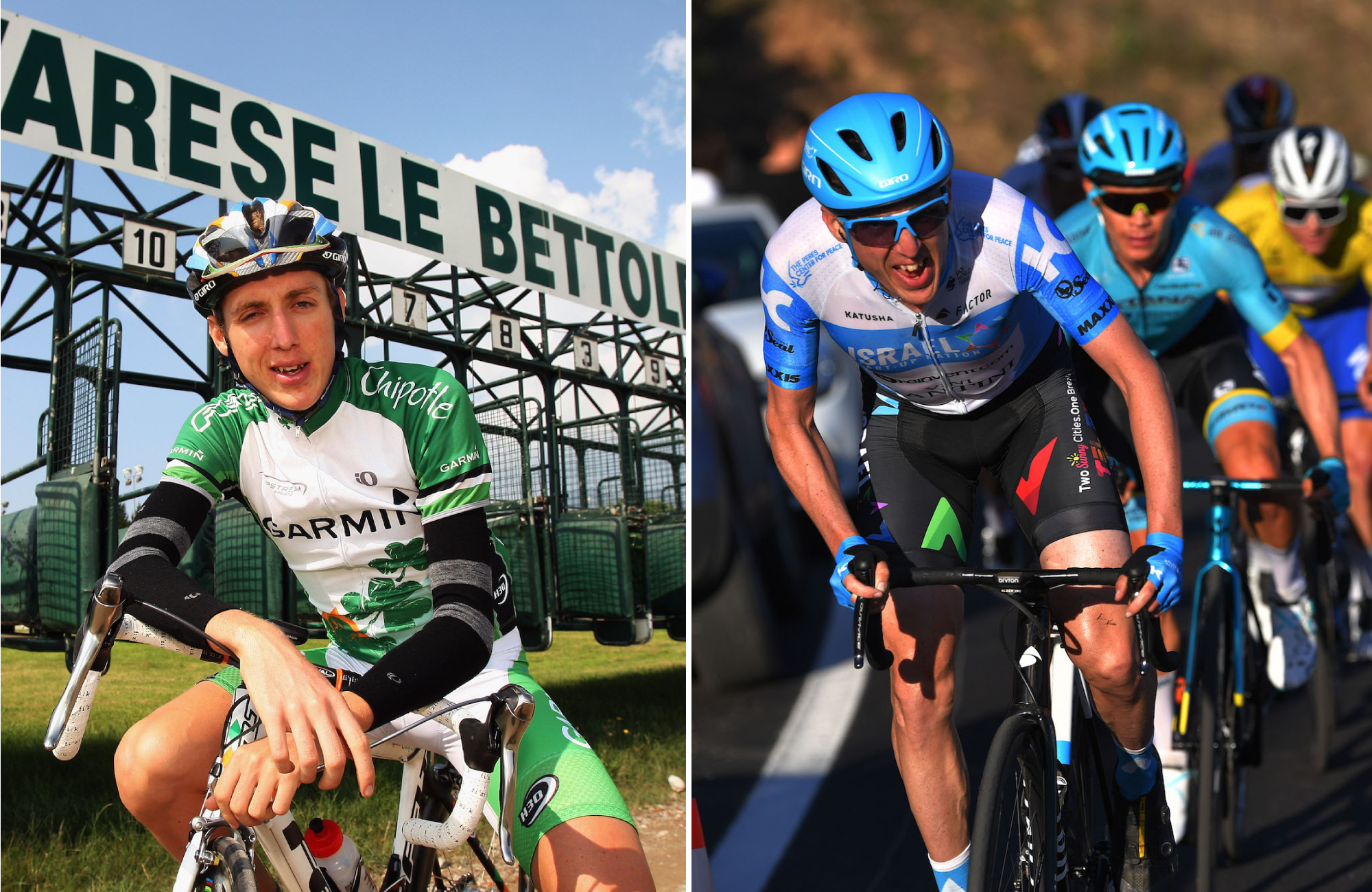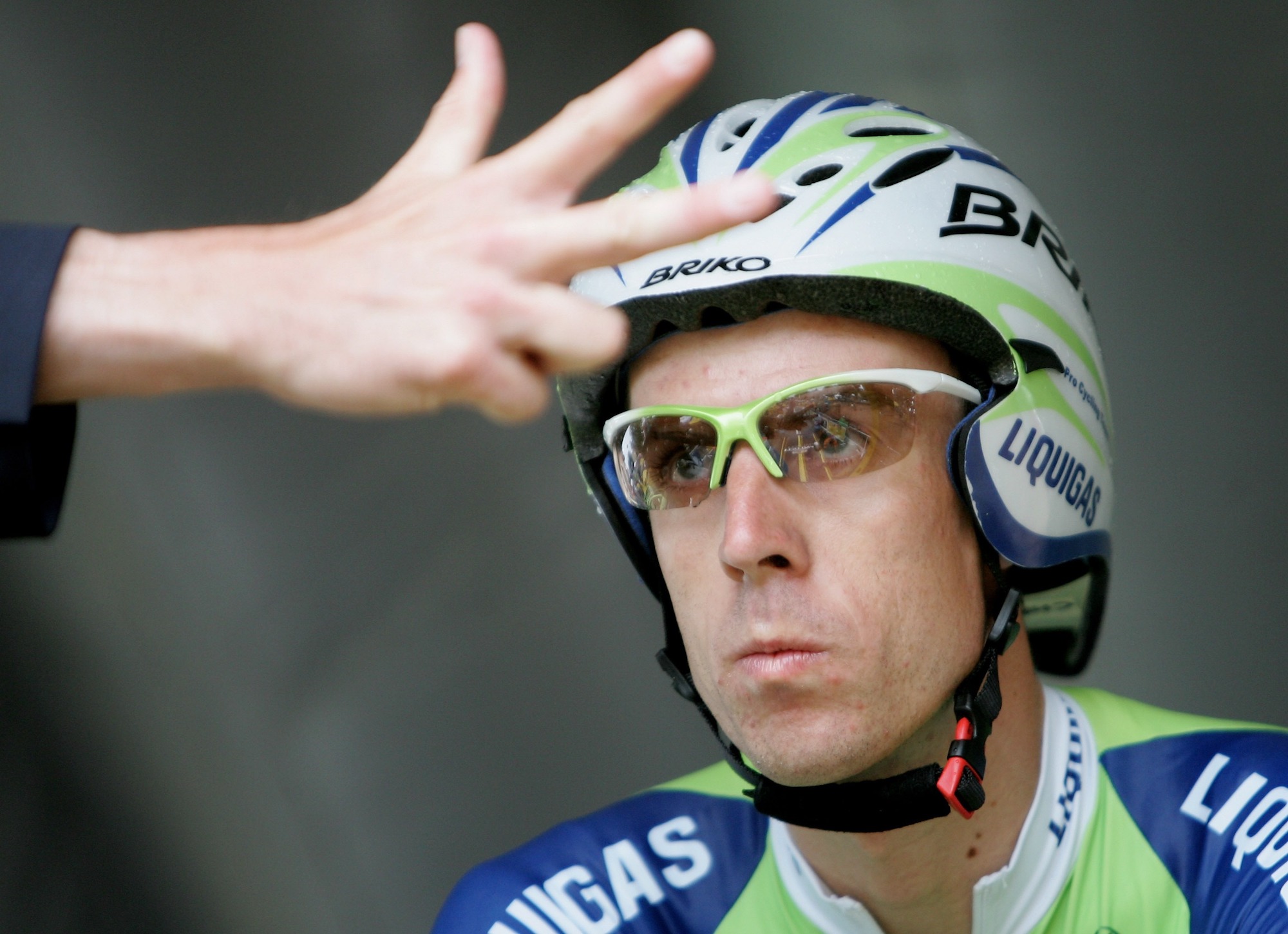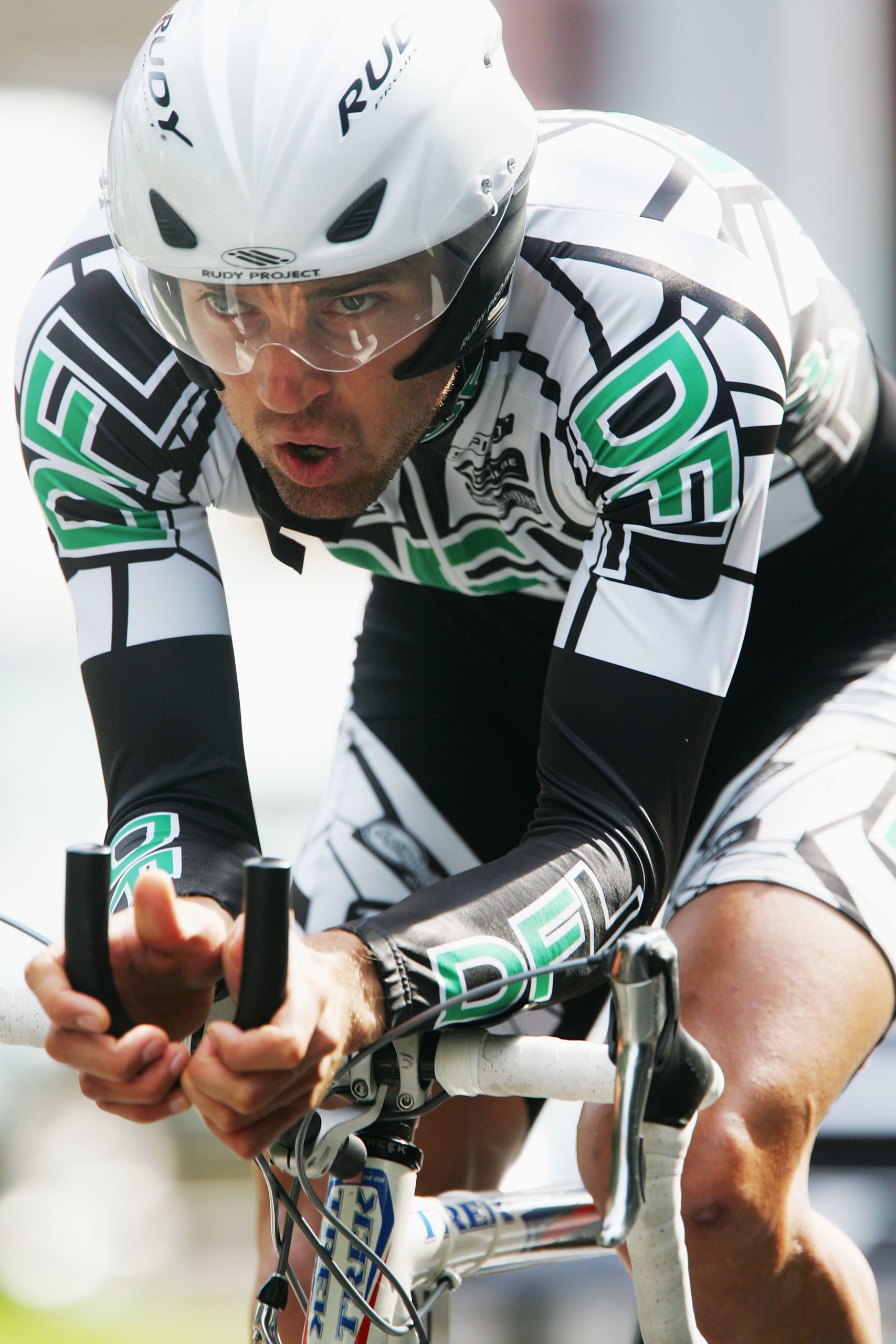'What the hell am I doing?': How riders such as Dan Martin launched their careers on the French circuit
The wheel tracks of many a young rider’s quest for pro success weave across France. Vern Pitt speaks to a selection of those who moved there to make them

Dan Martin (Getty)
The latest race content, interviews, features, reviews and expert buying guides, direct to your inbox!
You are now subscribed
Your newsletter sign-up was successful
It was 11pm when the car pulled up outside the team apartment in Marseille, France. Mid-December rolled out its customary inauspicious welcome of lashing rain and a chilling howling gale for the pale skinny 19-year-old from Birmingham who exited it. There was no one else home as he made his way inside and hunkered down for the night. Alone. It was the start of something that would eventually see him realise dreams of winning a Monument and stages of the Tour de France. But he didn’t know any of that as the shutters banged and the constant rain rapped on them. "What the hell am I doing?" thought Dan Martin, then of Vélo-Club La Pomme Marseille, now Israel Start-Up Nation.
What he was doing was following a well-worn road to cycling’s elite levels that bore the wheeltracks of British riders from throughout the post-war period. Though Belgium and the Netherlands are also popular, and Italy and Spain have been used as stepping stones for aspiring pros over the years, few countries offer the full gamut of terrain combined with the race programme, bunch depth and the history and reverence of cycling that France has.
Most importantly, it’s a place where team scouts look for talent; you can be noticed there and that is crucial if you’re to make it past the development ranks into a professional team.
Martin’s experience of that first day is by no means unique. Speaking to those who have taken that route, both the ones who found success and those that didn’t, it’s striking how little the adventure has changed despite the way the world is now nothing like it was decades ago.
>>> Subscriptions deals for Cycling Weekly magazine
"We stayed in a sports centre," recalls Pippa York, then known as Robert Millar, of her first 48 hours in France in 1979, more than two decades before Martin would make a similar trip. "It was basically a room with no windows and two or four beds in there. It wasn’t in any way luxurious."
For York, the competition to gain a foot on the ladder started almost immediately. "We were there for about, I think, two days before we travelled on to the Côte d’Azur to stay in the hotel, then it was straight from there to the first training and then the first races… You’re very aware there’s probably 10 of you, but only six places in the apartment when you come back. You’re expected to perform straight away.
The latest race content, interviews, features, reviews and expert buying guides, direct to your inbox!
"Those first races are quite stressful because you’re under that much pressure. The French guys, they can go home to their mum and dad, but you’re not going home to that situation anymore. You’re going home to an empty apartment. So you have to get used to that very quickly. And you have to get used to the fact that the people you can actually speak to and communicate with, you’re going to have to beat them. Otherwise, you’re going home and not them. It’s a bit of a jungle."
York did enough to keep her spot, but only just. Returning to Paris, where the ACBB team was based, she was sharing a studio, which was known to be the ante-room to the exit from the squad. It would take months for her to prove worthy of a place in the main team apartment.
In the intervening years, there does seem to have been a relaxation of this approach, but the sensation that as a foreigner in a foreign land you have to prove yourself above and beyond the local on the team and the fierce competition for spots hasn’t changed. It may not be played out on a week-by-week basis, but it’s a creeping pressure that is inescapable.
Determination

EF Education First sports director Charly Wegelius rode for highly regarded French team Vendée U when he was 18. In his autobiography Domestique, he writes: "To my team-mates, who were in most cases much older than me, I was another foreigner who was vying to take their spot and I deserved no quarter… I wanted to become professional and my team-mates all wanted to become pros too, and there just aren’t that many places, so in our own way we were all fighting tooth and nail for it."
But as is often the way with Wegelius, he had his own way of coping with it. "The mindset I had is I did it without any expectation of a result… The determination to do it, to do it to the best level that I could, wasn’t linked to the fact that I thought I could do it. It wasn’t a results-orientated mindset, it was just how I was, especially at that age. It was much more intense at that age. But that was just my approach," he says.
Not that any of this means the racing isn’t a shock. Everyone CW speaks to tells a similar story of getting a kicking for at least the first six months, often up to the first 18, before they found their feet. Part of that is explained by the jump up from junior ranks to senior level, but it’s also the depth and quality of the field.
Yanto Barker, founder of Le Col, went to race for UVC Aube, aged 20. "It was tiring, living in a foreign land and learning something new all the time and trying to work out who these people are and who should I follow and what teams are strong. There’s a mafia who are kind of colluding against everyone else, even though they’re in different teams." But by his second year when he’d relocated to Roubaix to digs, overlooking the famous velodrome, he’d started to make selections and was contesting wins.
He attributed that progress partly to knowing the races, partly to speaking the language, but also to tenacity. "I think anyone who stays 18 months is very committed to it. The first year is savage, and then you go home and you think, ‘Oh, I could just not go again.’ That’s very tempting… I always felt like I’ve got a job to do here and I need to finish this," he explains.
You get used to the conditions too. Long drives to races, 10 hours or more, were not unusual. Martin says it’s "surreal" they were ever able to perform given the fatigue it would land you with. Wegelius writes in his book that his team-mates regarded him with some awe when, as a junior, he borrowed the team van and took himself to his first race, but there was no other way to do it.
Those early races get harder still if you have bad luck. "I crashed in probably my third or fourth race," recalls Martin. "I was going pretty decent and that’s what set me back to the first part of the year. Everybody forgets that crash and I remember I got back on the bike. I was training pretty well again and in the first race back my back went into spasms. And nobody believed me. Every time I’d go hard I had to have a week off the bike to be OK. The crash had bent my crank." He got it fixed, but the initial dismissal of his concern is not rare. Often young riders are dealing with experienced racers in their team management and the desire not to be seen as soft is strong.
That pressure is just one that adds to a general sense of loneliness from being a stranger in a strange land. But this is part of the bargain that riders have to make to pursue their dream this way. York describes her experience in 1979: "An international phone call would cost you a fortune. It basically comes down to can I afford any kind of luxury or do I phone home to say that I’m miserable or lonely, so I just coped with the loneliness of it. That was my character.
"I didn’t miss home. Australians would come a few thousand miles to race in Europe and you ask them if they miss home and they don’t. They don’t want to admit they don’t, but you’re so glad to be doing what you’re doing and enjoying it so much you don’t miss it until you really think about it."
But York is the first to admit that the life of an aspiring pro bike rider "isn’t for everyone" and Martin echoes this when he tells CW that he believes there were plenty of talented riders who didn’t make it because they couldn’t handle the loneliness of these formative years. He adds: "It’s effectively a selfishness that you’re there on your own just concentrating on yourself. It’s something where you have to be 100 per cent focused on what’s good for you, and stay on top of that."
Barker recalls: "I had a girlfriend at home and obviously I missed my family and it was hard not speaking to anyone. Back then we still wrote letters. We bought telephone cards with our weekly salary, which was about 30 French francs a week. Twenty-five of that went on food and five went on a phone card, which lasted about two days."
Rod Ellingworth, team principal of Bahrain-McLaren, who first raced for UVC Aube in 1997, says he was so cut off from the UK – he had to use a phone box to call home – that when he returned one winter and ran into an old acquaintance at a cyclo-cross race he assumed Ellingworth had given up racing. "I think I’d done something like 93 races that year, we used to race a lot," Ellingworth says. "I was like, ‘No, I’ve completed more races this year than I’ve ever done before.’"
Learning the lingo
Today that disconnect is far less stark. Joe Laverick, who relocated to the Alps to ride with Chambéry CF, the Ag2r La Mondiale development squad, tells CW he Facetimes his family most days.
Not that it’s impossible to make new friends in France, it just comes with obvious additional challenges if you’re coming from a country that has historically put little emphasis on teaching children languages. As a sociable person, Ellingworth found it incredibly frustrating to not be able to talk to those around him and so put in dogged efforts to learn the language. He also had posters with phrases up all around his flat, which he shared with another English-speaking rider to help them learn.
"I used to take a phrasebook with me everywhere," he recalls. "They used to take the p*** out of me because I’d always have it, even on training rides. I’d be in the back of the group and if I wanted to say something because my reading is really, really bad, I just used to have to point to the word, they’d say it to me then I’d have to remember it."
>>> Cycling Weekly is available on your Smart phone, tablet and desktop
It didn’t take long before he was firmly ensconced in the local scene. "Where I lived ended up being the meeting point and I used to take all the training rides – every day they’d all meet at mine and we would leave at 10am. I’d do all the routes so this is with François Simon who was with Gan and Jérôme Delbove, who rode for Cofidis."
Being up close with the French pros had its pluses and minuses. York remembers how she’d see pros she’d thought highly of making mistakes or doing things she felt weren’t correct in races and that gave her additional hope she could make it.
Wegelius recalls his own bitter-sweet experience. "One year we rode this lower-tier pro race and my cleats were squeaking. A guy from basically the smallest professional team, he rode past me, heard my squeaking pedals and called me an ‘amateur’. I can remember soon afterwards, we turned somewhere and the wind blew from the side and he basically got popped, so I took the chance to call him an ‘amateur’ as I rode past him."
Though he adds: "The proper professional riders were just on a totally different level. I think I can just remember mostly not wanting to make them angry."
There are other French cycling idiosyncrasies to get used to. An obsession with weight is a constant with almost everyone CW speaks to. Martin says: :I saw a lot of guys end up just eating salad after long training because they’ve been told they’ve got to get skinny. I was just like, ‘What?! This is silly.’ I gain all my weight on my stomach anyway so I can hide that. Back then it was all baggy jerseys anyway."
Tales of riders ripping the middle out of baguettes to reduce their bulk (and calories) are legendary, but Stuart Balfour, who currently rides for Bourg Ain Cyclisme, encountered an even more unusual way to lose weight.
"I remember getting told that if you want to ride fast and you want to get lean, just spend the day eating apples. They call it the ‘jour de pommes’. You just have apples for breakfast, lunch and dinner, which I thought was absolutely bizarre. It turns out, it’s a French thing. They all think it’s amazing. The instant I heard it I thought it was nonsense and I don’t have any plans on trying it."
French life

The rush of racing is accompanied by needing to learn some basic life skills, much like any young person living independently; not least of all because money is a rare commodity.
For Barker, 2020 has brought back memories of that simpler time living a "hermit life". "Lockdown in the UK reminded me of being back in France with no money, nowhere to go, no one to see. And only my job to do. It was really simple. You’d ask, ‘Shall we go out tonight?’ Now we can’t. Back then we couldn’t afford it."
Ellingworth says he found it much easier once he could "get in on the deals" for premium prizes or criterium wins.
Despite this, he recalls he paid for his accommodation by doing the gardening for the landlord and put his nascent carpentry skills to good use, making his own furniture when he moved out of team accommodation in his second year.
The goal, of course, is to turn pro and for York this happened the following year having won the season-long amateur competition of the day. For others it was a longer struggle. Dan Martin is unusual in that he got an offer from Slipstream-Chipotle, but actually declined to join them immediately, opting instead for another year in the amateur ranks. "I just wanted to win races again," he says.
Ellingworth was among those that never made it. "I never really made much from it or whatever, but bloody hell I enjoyed it. It’s one of the best times in my life," he recalls.
When we ask people what they learned in that time, it’s the thoughtful Wegelius who gives the most insightful answer: "Looking back now, I grew immensely as a person.
“Going through that experience and being so far out of my comfort zone, that has value in itself."
He adds: "It’s the safest place in society that you can really learn about how hard life is.
"You learn first-hand that you have to be responsible for yourself. That if you don’t put the work in, you don’t get anything out. And that things aren’t necessarily fair and you won’t always get what you deserve.
"That’s all this stuff that we all learn going through life, but in some cases, it takes us quite a while to learn… I really do believe in, you know, sport as a school for life." That school of life is still open for entries.
This feature originally appeared in the print edition of Cycling Weekly, on sale in newsagents and supermarkets, priced £3.25.
Having trained as a journalist at Cardiff University I spent eight years working as a business journalist covering everything from social care, to construction to the legal profession and riding my bike at the weekends and evenings. When a friend told me Cycling Weekly was looking for a news editor, I didn't give myself much chance of landing the role, but I did and joined the publication in 2016. Since then I've covered Tours de France, World Championships, hour records, spring classics and races in the Middle East. On top of that, since becoming features editor in 2017 I've also been lucky enough to get myself sent to ride my bike for magazine pieces in Portugal and across the UK. They've all been fun but I have an enduring passion for covering the national track championships. It might not be the most glamorous but it's got a real community feeling to it.